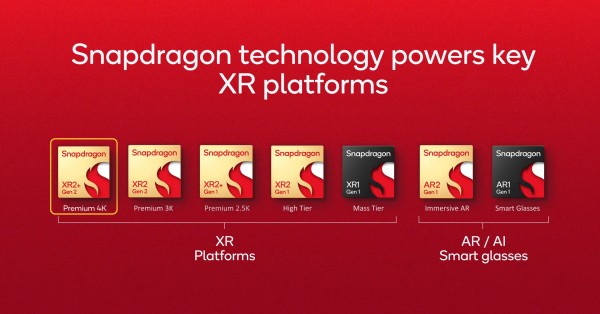Overview of Samsung and KT’s Naval 5G Project
Samsung Electronics and KT Corporation have been selected to deploy a Private 5G network for the Republic of Korea Navy. This initiative, known as the Smart Naval Port project, marks the first private 5G deployment at a Korean Naval base. Scheduled for completion by December 2025, the project will enhance base operations and support for the Navy’s 2nd Fleet, increasing security and efficiency.
Addressing Communication Challenges in Modern Naval Defense
In modern defense, secure and seamless communication is essential. The Korean Navy needs advanced technology to manage real-time operations, ensure security, and support logistics. Traditional networks are vulnerable to cyberattacks and are not optimized for the high data requirements of modern defense systems. Additionally, the integration of next-generation applications like unmanned vehicles, digital twins, and intelligent monitoring demands a robust infrastructure.
Samsung and KT’s Private 5G Solution for the Navy
Samsung and KT are building a fully independent Private 5G network tailored for the Navy’s operational needs. This network will offer ultra-fast speeds, hyper-connectivity, and low-latency communication. It will be designed to handle the Navy’s critical applications, including real-time video surveillance, unmanned vehicle control, and integrated battleship management.
Samsung’s end-to-end private 5G solution, which includes the 5G SA Compact Core and advanced radio solutions, will power the network. This network will run on the mid-band (n79, 4.7 GHz) spectrum, a frequency range commonly used for military applications. The system will also support AI-enabled smart connectivity for efficient management.
Why Samsung’s 5G Technology was Chosen for Military Use
Samsung’s Private 5G solutions are trusted for their reliability, security, and commercial viability. The Compact Core enables quick deployments on a single server, simplifying operations while enhancing uplink performance. This allows seamless data transmission across multiple devices, crucial for managing operations in real-time.
Innovative Use Cases in the Smart Naval Port Project
The Smart Naval Port project introduces several innovative use cases:
- Digital Twin: A 3D digital replica of the naval base will provide real-time insights, improving strategy development and operational resilience.
- Intelligent Security Monitoring: Real-time surveillance of vehicles, armories, and ammunition depots will enhance defense capabilities. Surveillance drones and a Video Management System (VMS) will offer a holistic view of the base, enabling faster response in emergencies.
- One-Stop Battleship Operation Management: This system integrates critical functions like navigation, logistics, and safety management into one platform, streamlining Navy operations.
How the Private 5G Network Enhances Naval Operations
The deployment of this Private 5G network will provide several benefits:
- Enhanced Security: Dedicated 5G infrastructure reduces vulnerabilities and ensures data integrity.
- Operational Efficiency: Integrated systems for battleship management and base operations reduce administrative workloads and streamline decision-making.
- Real-Time Monitoring: The network supports real-time video and data analytics, improving situational awareness and operational readiness.
- Improved Uplink Performance: Optimized uplink features support high data throughput, crucial for the Navy’s heavy data transmission requirements.
5G’s Growing Role in National Defense
This deployment sets a new standard for how Private 5G networks can revolutionize defense operations. By leveraging advanced connectivity, the Republic of Korea Navy will be better equipped to manage operations, enhance security, and improve overall efficiency. The project highlights the growing importance of 5G private networks in critical national defense sectors, and similar implementations are expected to follow in other defense and governmental sectors globally.
Samsung’s Expertise in Building Secure 5G Networks
Samsung brings extensive experience in building Private 5G solutions across sectors like healthcare, education, and government. Their expertise in secure and scalable 5G infrastructure ensures the Navy’s network will meet the highest standards of security and reliability.
KT Corporation’s Role in Establishing the 5G Network
KT Corporation, as Korea’s leading telecommunications provider, is responsible for laying the foundation of the Private 5G network. With a history of pioneering 5G technology, KT’s role in establishing the Smart Naval Port demonstrates their ability to integrate cutting-edge ICT infrastructure for defense purposes.
Progress Update on the Smart Naval Port Deployment
The project began in the summer of 2024 and is set to be completed by December 2025. As of October 2024, significant progress has been made in designing and deploying the necessary infrastructure. The companies are working closely to ensure all systems are ready to support the Navy’s evolving needs.
- Summer 2024: Samsung and KT begin collaboration on the project.
- December 2025: Full deployment of the Private 5G network is expected to be complete.
Quotes from Industry Partners
Jun-Ho Kim, Senior Vice President at KT, emphasized the importance of this project in standardizing the Navy’s operations, stating, “We look forward to laying the foundation for the ‘Smart Naval Port,’ improving the Navy’s operational support capabilities.” Simon Lee, Vice President at Samsung, highlighted the significance of Private 5G in defense, stating that this project underscores their commitment to leveraging 5G to meet customers’ needs across sectors.
Samsung and KT’s collaboration on the Republic of Korea Navy’s Smart Naval Port project is a landmark in the deployment of Private 5G networks for defense. The project demonstrates the potential of Private 5G to transform national security operations by enhancing communication, improving security, and streamlining naval operations.
































